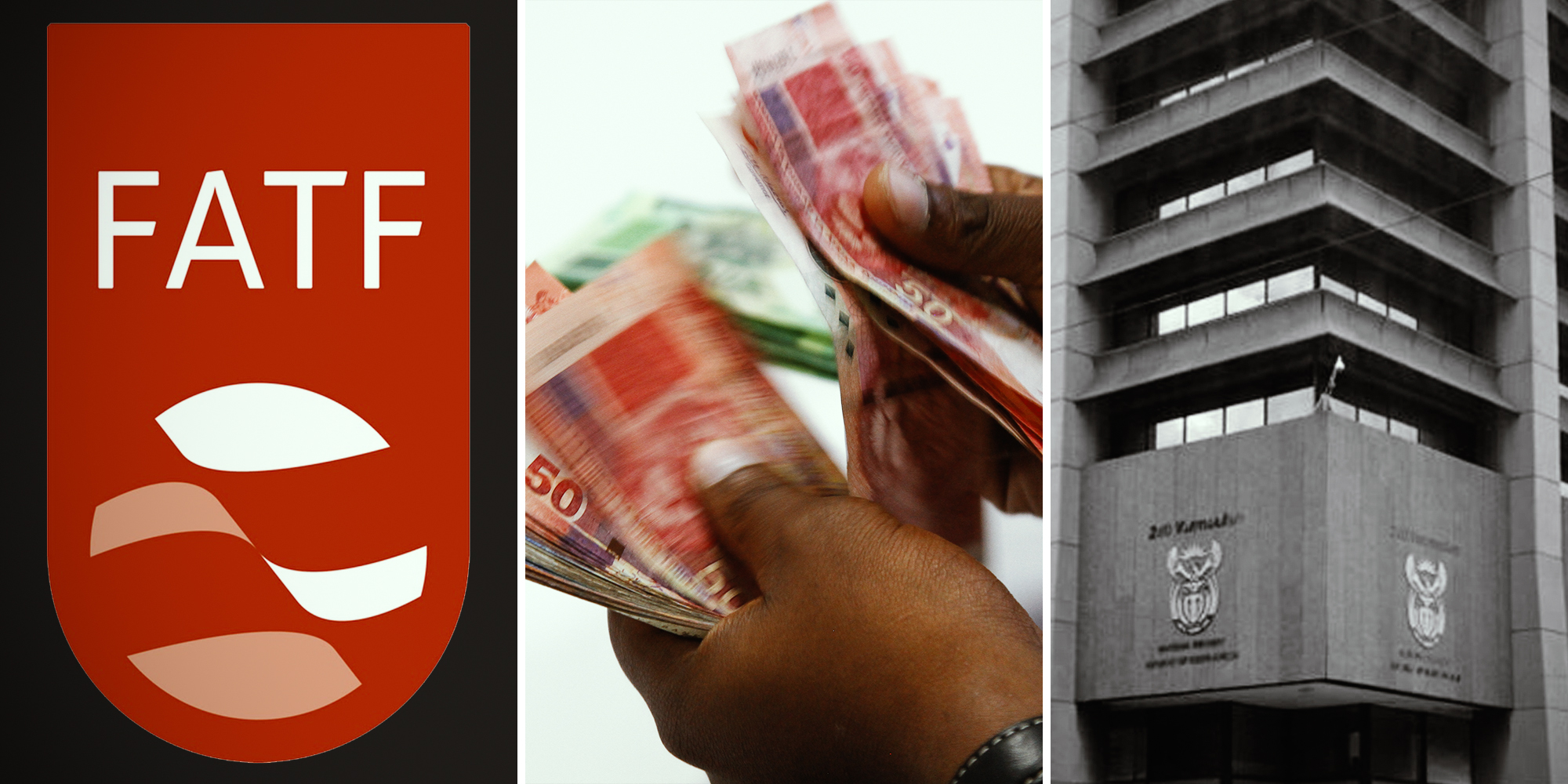South Africa was hoping to get off the Financial Action Task Force (FATF) greylist in time for its February plenary, which would likely mean a formal exit in June. This now seems unlikely because today is the final deadline for compliance with the three remaining sticking points, and there is little indication that they have been entirely resolved.
The Budget speech, or even perhaps the State of the Nation Address, should provide some clues. But to get a better picture of the situation, I spoke to Vincent Gaudel, a financial crime compliance expert at LexisNexis Risk Solutions. While the research house, is not formally linked to FATF, it closely monitors FATF's actions and decisions.
At first glance, this might seem like an arcane bureaucratic process, however it’s anything but. Global money laundering and terrorism financing operations are shrouded in secrecy, but estimates suggest that they account for between 2% and 5% of global GDP. If accurate, that means the illicit money laundering market is worth about $4-trillion – making it the sixth-largest economy in the world if it were a country. It’s one of the few things where almost the entire world, including the US and China, agree.
The greylisting also has serious consequences for South Africa. Gaudel notes that a recent IMF study found that being on the greylist (as opposed to the blacklist, which has only three countries listed) could cost South Africa 7.6% of its GDP in lost international capital inflows.
Gaudel is eager to see what FATF will say about South Africa after its February meeting, but he thinks it’s unlikely that the country will exit the greylist at that point. However, he believes South Africa’s chances of exiting later this year are “fairly reasonable”.
While there’s no certainty, Gaudel points out that the six African nations previously on the greylist took an average of 28 months to exit. If that timeline applies to South Africa, a realistic expectation would be April 2026. That also means that if South Africa fails to exit the list in FATF’s June review, it would be falling behind.
Currently, three outstanding “actions” remain that South Africa must satisfy. This is a marked improvement from the start of the process in 2021 when the country was deemed compliant with fewer than half of FATF’s 40 requirements. By February 2023, eight remained, and now only three are left, demonstrating that South Africa has taken the issue seriously at a senior level, as one would hope.
But the last three are the toughest:
- Effective supervision of the private sector;
- Access to beneficial ownership of legal entities; and
- A sustained increase in the investigation and prosecution of serious and complex money laundering cases.
Each presents significant challenges. The beneficial ownership issue, for example, should be straightforward but isn’t. In South Africa, trusts are administered by the Master of the Supreme Court rather than SARS or the banks, making ownership transparency particularly tricky.
There’s a reason, when EFF leader Julius Malema faced tax troubles in the early 2010s, that SARS had to trace his assets through a trust. Although Malema reached a settlement with SARS in 2014, South Africa’s courts remain fragmented and lack a comprehensive digital infrastructure. (I know, understatement).
But the biggest challenge is the third issue: demonstrating a “sustained increase” in the investigation and prosecution of serious financial crimes. Gaudel emphasises that compliance isn’t just about adopting international standards or updating laws – that part is already done. What matters now is results.
It’s a well-worn truism of South African politics that passing laws is easy, but enforcing them is another story entirely. Nowhere is this more evident than in the aftermath of the Zondo Commission. Despite mountains of evidence of corruption, actual prosecutions have been almost nonexistent. It’s not even that they remain unprosecuted – charges haven’t even been laid in many cases. The ANC is only now beginning to grapple with whether to expel members accused of stuffing black plastic bags with Gupta cash.
If it were up to me, I wouldn’t check this compliance box until at least one ANC politician was poodling around in an orange jumpsuit. And formally, that is actually the standard – there must be a measurable and sustained increase in both investigations and prosecutions.
Gaudel believes South Africa’s progress has been “really impressive” compared with other countries. He sees the greylisting process as a big wake-up call – not just for South Africa but for all countries that have undergone it. On the technical front, there has been “really significant progress”.
“I think it was really helpful to get things moving. But now the whole challenge is about demonstrating that the government can turn these rules into actual outcomes,” he said.
I suspect this means that the burden of responsibility for getting South Africa off the greylist is shifting from Treasury to the Department of Justice – and frankly, that’s exactly what worries me about this final stretch. DM





